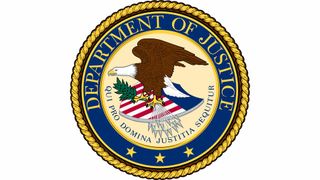Justice Charges Chinese Hackers

Deputy Attorney General Rod Rosenstein said Thursday (Dec. 20) that the Department of Justice has charged two Chinese hackers, identified as Zhu Hua and Zhang Shilong, with "conspiracy to commit computer intrusions against dozens of companies in the United States and around the world."
The hackers are accused of targeting managed service providers (MSPs), which store, process and are supposed to protect commercial data, including sensitive business information and intellectual property.
Related: Sen. Warner Says Cyber Threat Is Here
The hackers, working for a group called APT-10, are alleged to be working with a the Chinese Ministry of State Security. In addition to telecoms and consumer electronics companies--who are not identified--their victims included "medical equipment, packaging, manufacturing, consulting, healthcare, biotechnology, automotive, oil and gas exploration, and mining."
"It is unacceptable that we continue to uncover cybercrime committed by China against other nations," said Rosenstein. "In 2015, China promised to stop stealing trade secrets and other confidential business information through computer hacking 'with the intent of providing competitive advantages to companies or commercial sectors,'" he said. "The activity alleged in this indictment violates the commitment that China made to members of the international community."
Related: House Cyber Report Finds Defenses 'Inadequate'
He said the indictments were a step in revealing to the world China's theft of commercial data. "Faced with the detailed factual allegations released today, and the corroborating statements of other victimized nations, China will find it difficult to feign ignorance," he said.
Broadcasting & Cable Newsletter
The smarter way to stay on top of broadcasting and cable industry. Sign up below
Rosenstein said that was why Justice was actively looking for "ways to better protect our telecommunications networks."
Back in September, the Trump Administration said it was going on the cybersecurity offensive.
National Security adviser John Bolton said that given that the U.S. is under attack daily from cyberspace, including attempts to "undermine democracy," the government would now use offensive as well as defensive cyber strategies to counter that threat, though he would not said exactly what that offense would entail.
Contributing editor John Eggerton has been an editor and/or writer on media regulation, legislation and policy for over four decades, including covering the FCC, FTC, Congress, the major media trade associations, and the federal courts. In addition to Multichannel News and Broadcasting + Cable, his work has appeared in Radio World, TV Technology, TV Fax, This Week in Consumer Electronics, Variety and the Encyclopedia Britannica.

